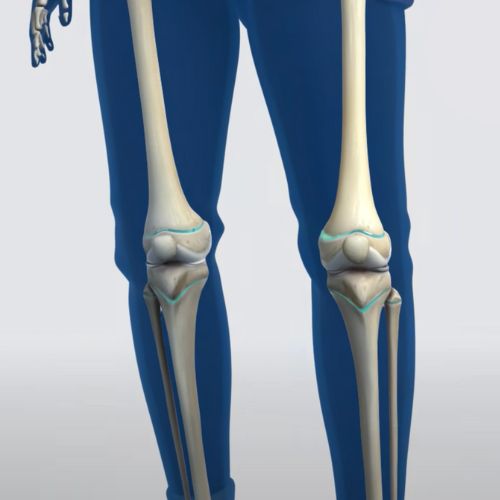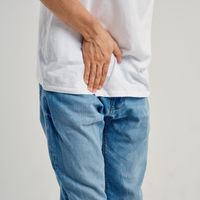In this article I’ll tackle one of the biggest questions looming for men as they age: estrogen levels. There isn’t a lot of data on how prevalent high-estrogen is for large populations of men, but we do have some case-studies, clinical data, and research numbers.
Vital Points to Keep in Mind:
Downside of Too Much Estrogen
Before we get to the myth-busting, here are the ways high estrogen can affect men at each lifestage.
Early Development/Adolescence

In our developmental years, estrogen plays a vital role in everything from the development of our testes to better cognitive outcomes. But too much of it can limit the length and total size of our bones, and can even delay or damage our androgen receptors. Later in life, this lack of androgen sensitivity can lead to tiredness, depression, and even sexual dysfunction.
Adulthood and Middle Age

This is the stage in life when most men begin to look at their hormone levels and health. A lot of the items on this list won’t surprise you, such as infertility and depression. But wait, you might be wondering, where is the weight gain and sexual dysfunction?
Fact is, some of these side effects are either outright myths (as in weight gain, see below), or caused by previous estrogen levels, as with androgen receptor damage. If you have any of these issues, it may not be current estrogen levels, but previous levels coming back. Some ways to combat these symptoms include diet, exercise, and supplements. Read more about how to lower estrogen in men here.
Older Men

The word is out on estrogen and bone health. For men and women, estrogen can lead to osteoporosis–and that can lead to a barrel full of negative health outcomes. As for prostatic diseases, the correlation seems to be rooted in our bodies ability to distribute growth hormones to different tissues. Estrogen plays a role in the growth and development of certain tissues, such as the prostate. In developmental years, this is a good thing. In later years, the growth becomes excessive, and in some cases, cancerous.
What Estrogen Does Not Do
Now we’ll cover some things that estrogen is not responsible for, no matter how we might want to blame it. Fact is, many of the things we don’t like about aging aren’t because we have too much estrogen, but too little testosterone. The answer for these problems, then, could be better testosterone health.
Estrogen Doesn’t Kill Sex Drive
Oddly, there have been studies that demonstrate that estrogen is an important hormone for sex drive and performance. In fact, in several studies, treating men and male animals with estrogen improved their motivation and their frequency of sexual behvior.
Estrogen Doesn’t Kill Assertiveness
Also, there are no studies to support the idea that estrogen makes you “less aggressive.” Actually, the opposite has been true, with one study indicating that estrogen can be as responsible as testosterone for aggressive, territorial behavior.
Estrogen Doesn’t Lead to Weight Gain
A third myth, that estrogen will make you gain weight, just isn’t supported by clinical and laboratory science. In both males and females, it appears that estrogen plays not only an important role in lipolysis (metabolizing fat for energy), but can even play a role in reducing appetite.
Conclusion
We all need to monitor our hormonal health, because our hormones affect every part of our fitness, wellbeing, and lives. But we also need to be smart about where we’re looking for. If you’re worried about your health outcomes, and think hormone levels might be to blame, take a balanced approach. Limit things that cause high estrogen and work on improving your total and free testosterone.

